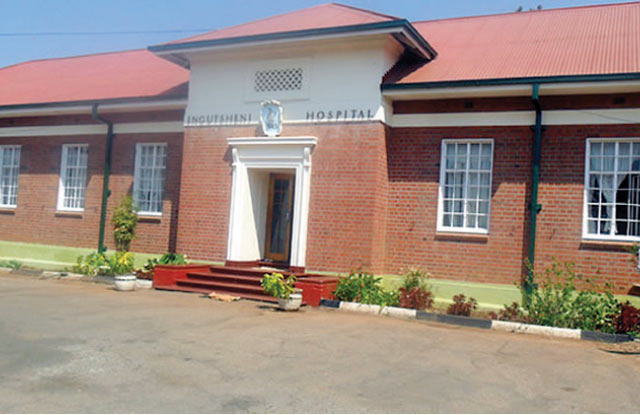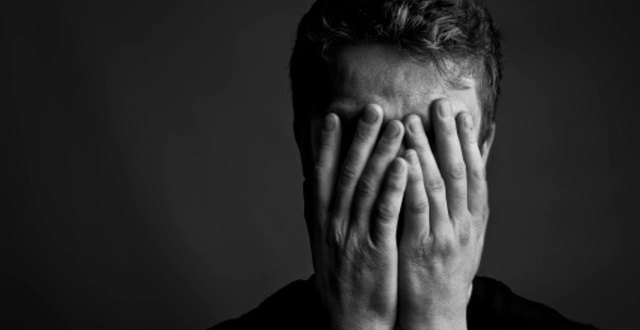The fight against hunger, deprivation at Ingutsheni

Bruce Ndlovu
KHUMALO Ward, located at the south eastern tip of Ingutsheni Central Hospital in Bulawayo, is not for the faint hearted.
A white painted door, broad and long, stands between whoever wants to enter Ingutsheni’s male admission ward and the purple clad patients that populate it.
A few fruit trees flank a path leading to this imposing entrance, giving the way leading up to Khumalo an air of serene calm.
This calm quickly disappears when the door is thrown open.
High pitched voices pierce the calm of a Bulawayo morning, as a rain-pregnant sky looms menacingly overhead. Some of the patients, using their arms as pillows, lie on the ground while others, with faraway, forlorn looks in their eyes, sit slumped on the few benches dotted around the courtyard.
Next to the dining hall, which sits in the middle of the ward, a few patients impatiently walk around in circles, as they take turns to shout the name of a missing comrade.
“He is not here, he was transferred to another ward this morning,” shouts the ward’s sister in charge Mrs Eugenia Zvavamwe.
The reply is heard by one patient and like runners handing over a relay baton; her words are loudly tossed from one pacing patient to the other, with each voice repeating what she announced loud enough for all to hear.
A semblance of calm returns to Khumalo.
Moments later another patient, tall and broad shouldered, approaches the hospital’s pint-sized and motherly acting public relations officer, Mrs Vongai Chimbindi.
“The doctor prescribed lithium carbonate for me but MaMo is saying that I’m being a problem,” he says eloquently. “You have to monitor MaMo. I told her my problem but she says she wants to give me an injection.”
This scene is an apt illustration of early morning life in the ward where the calm, the restless and the violent collide. Khumalo is the first port of call for all newly admitted patients before their initial assessment.
In such an environment, skill and bravery are essential requirements for any health worker that wants to prosper.
“When we first came here as student nurses from Harare Hospital we were so afraid,” said Mrs Chimbindi after she had turned her back on Khumalo that morning. A veteran of 32 years in the mental healthcare sector, she now considers herself “part of the furniture” in the 109-year-old institution.
Although she handled the complaints with the assured confidence of a veteran, not all fires that ignite between patients and nurses can be beat down so easily.
Last year, at least three nurses were reportedly attacked by patients as the hospital went for most of the year with only a fraction of the drugs it required, increasing the chances of erratic or violent behaviour from patients.
This is moreso true in Khumalo Ward, where a significant part of the hospital’s population lives.
“This is the real Ingutsheni,” said Mrs Chimbindi. “Here, if five patients are discharged today you know that five more will arrive tomorrow to replace them,” she added.
The admission wards are the recipients of a mixed bag of patients, and as they would not yet have been assessed, authorities have no way of predicting how aggressive they might turn out to be.
“In those admissions wards, that’s where you get a mixture. Some will be confused while others will be violent. It’s only after being assessed that we know how aggressive they are,” said the institution’s clinical director, Dr Wellington Ranga.
Violent encounters between staff and patients cast a dark shadow over the institution, a shadow only further lengthened by a critical shortage of drugs that hit it last year.
“It’s always a difficult question to ask “what can you do” when you don’t have the things that you need. Even in the army, if you don’t have enough bullets, what do you do?” said Dr Ranga.
At the root of the institution’s problems is the sporadic funding it receives.
According to the institution’s chief executive officer Mr Nyasha Chibvongodze, 80 percent of Ingutsheni’s 600 in-patients and 1 400 out-patients do not pay for the institution’s services leaving it reliant on government funding.
While government attempted to breathe life into a comatose economy, Ingutsheni limped through a torrid 2016.
“At the beginning of each year, you hear that we will be given a certain amount of money. However, an allocation in the blue book and the actual release of money are two different things,” said Mr Chibvongodze.
The hospital received its first piece of a $350 000 pie only in August when a disbursement of $70 000 was made. It got another in November before the next on the last day of the year.
“Now with that being the case, if we can afford to buy sedatives for three out of 10 patients, it means that the other seven will remain violent,” he said.
While violent encounters made most of the headlines last year, bad news of a different sort ushered in 2017.
Makokoba MP Retired Colonel Tshinga Dube, who is also Minister of War Veterans Affairs, revealed an outbreak of scurvy at Ingutsheni during a tour of Bulawayo milling companies by Vice President Emmerson Mnangagwa in January.
“I visited Ingutsheni Hospital recently and patients there are developing scurvy because of lack of proper nutrition. Those people there hardly have meat in their diet,” said Rtd Col Dube.
While a depressed fiscus is mostly to blame for such acute shortages, the country’s overall perception of mental health also plays a part in the tale of hunger and deprivation that unfolds year after year at Ingutsheni.
According to Dr Ranga, Zimbabweans – 1,3 million of whom suffer one form of mental illness or the other, find it easier to take care of a person recovering from a physical ailment than tend to a relative undergoing the sometimes slow and straining process of mending a broken mind.
“You notice if you go to Mpilo (Central Hospital) during the visiting hour, you will see a whole bunch of people carrying bananas, oranges, guavas and so on as they wait to see their relatives.
“But if you come to Ingutsheni, we don’t get any visitors bringing anything.
“If you go to Mpilo you will see fruits brought for someone who has had a laparotomy and they can’t eat so the fruits are kept in lockers where they eventually get bad and are then thrown away. Here we don’t throw away anything. If you come with bananas all of them will be eaten,” said Dr Ranga.
According to Mr Chibvongodze, Ingutsheni is in most cases seen as a dumping ground, a last resort where society can hide and get rid of the mentally ill after anointing oils and herbs from prophets and traditional healers have failed to make a mark.
In as much as they are ignored and treated like lepers while they are still alive, Ingutsheni’s patients sometimes even get the cold shoulder posthumously.
“People go for years without any visitors. Some people even die without having received any visitors because people just don’t want to hear about them,” said Dr Ranga.
Poor family support, perhaps explains why relapses are on the increase, the re-admissions outnumbering new admissions last year.
“Once outside, it was easy for me to fall into old habits again because I would not have that support to keep me upright when times got hard,” said Mr Kevin Matongo, an Ingutsheni out-patient who was discharged two years ago but has had several relapses over a period of over two decades.
Despite all the problems that the institution faces, Mr Chibvongodze is confident that it can achieve self sufficiency.
Under his stewardship, the hospital has tried to steer away from hunger by taming, for agricultural processes, some of the 223 acres at the institution’s disposal.
An ambitious horticultural project caters for the hospital’s food needs, while plans are afoot to drill more boreholes and also start selling produce to the market. However, this solution, as brilliant as it is, gives birth to its own unique problem.
“The problem on the relish part is that we are only growing vegetables. So we don’t have meat and protein becomes an issue,” said Mr Chibvongodze.
He said he was optimistic that through awareness programmes which include reaching out and educating the young, the institution could help change misconceptions about mental health.
“We have to catch them young. We are nurturing future adults who will be able to take care of their relatives should they have mental health problems,” Mr Chibvongodze said.
Through such efforts, Ingutsheni has witnessed increased community involvement and interest in the day to day running of one of the country’s two mental hospitals. Bakers Inn, for example, donates 300 loaves of bread per day to the institution, which means that every patient is guaranteed at least half a loaf at the start of each day.
According to Mrs Chimbindi, who is usually in charge of St Francis, the children’s hospital, community involvement was particularly noticeable where the welfare of the institution’s younger patients was concerned.
“People respond very well when it’s the children. They go to the extent of coming to you and actually asking what you need. When I ask for help for the adults, things are different. The same mouth will be begging but it’s difficult to get people to respond,” she said.
If Ingutsheni is to stay afloat, Mrs Chimbindi said, her cries and those of others will have to be heard and acted upon if the cycle of hunger and deprivation at the institution is to be broken.











Comments